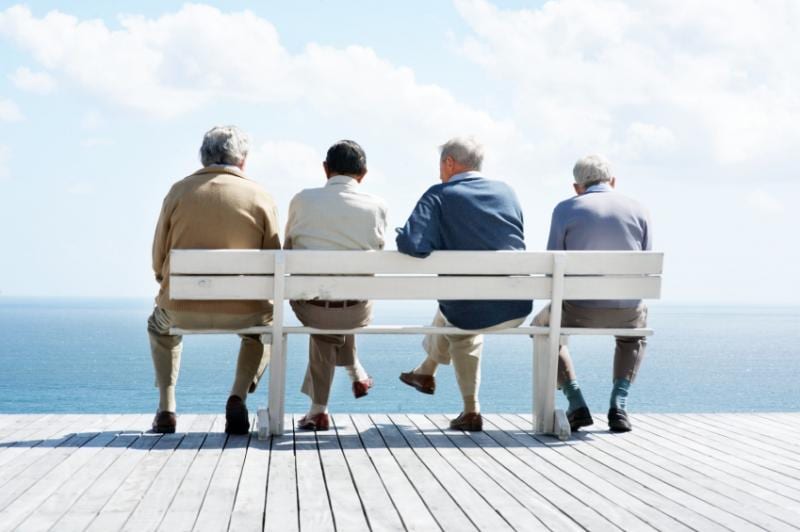
Courage
You can feel the anticipation in the growing crowd. Students, faculty, staff, as well as people from Austin and beyond, gather in Gregory Gym on The University of Texas at Austin’s campus. Nearly 4000 of us have come to listen to Brené Brown talk about courageous leadership.
And more.
Trained as a social worker, she writes and speaks around the world to a variety of audiences: business leaders, elite athletes, the Army’s Special Forces, and leading educators among them. She also speaks to regular folks, to all of us really, who seek to live less encumbered by fear and other detractors from a more authentic, courageous, and joy-filled life.
Vulnerability and Shame
Whatever the audience, Brené always talks about vulnerability and its constant hindrance, shame. Vulnerability means living with uncertainty, risk, and emotional exposure—all of which may be sources of courage. Shame, on the other hand, is the “intensely painful feeling or experience of believing that we are flawed and therefore unworthy of love and belonging—something we’ve experienced, done, or failed to do makes us unworthy of connection.”[1] To think of it in slightly different terms, shame involves feeling overly exposed, and ties to concerns over our self-worth and falling short of what we perceive as others’ expectations of us, which breeds fear. Too often, experiences of shame and related fear have a destructive effect on how we think, feel, relate, and, yes, lead; how we see the world and those in it, including ourselves.
Brené’s genius is that she recognizes that most of us live with pervasive shame, which ultimately quells our courage and prevents the kind of vulnerability that offers more joy. She sees, too, that this bind we live in is self-inflicted, and we can learn to free ourselves by getting better at and more comfortable with, as she puts it, “showing up and being seen,” authentically, for who we are. We find joy by shedding shame’s armor, which we wear because we think it protects us, and instead “embracing the suck” of life’s challenges that come our way, living with uncertainty, risk, and emotional exposure—that is, living with vulnerability—and striving for a more authentic and courageous life.
Exposure
Less than two hours earlier, just a mile or so from campus, I sit with a group of friends for our own foray into living more vulnerably and with less armor. Two things brought us together last year, Parkinson’s disease and our common connection to The University of Texas as professors and, in some cases, administrators. All of us are men, and everyone but me is retired; I am usually a “youngster” in most Parkinson’s crowds. But that’s just fine. I love being a part of this group, and I value these brilliant and wise souls mentoring me for the journey that lies ahead with the Parkinson’s beast.
We meet at least once a month, at my friend Gary’s house, and, get this, we talk about ourselves. I know…men don’t usually talk about themselves, at least not in any vulnerable way. Instead, we talk about sports, politics, global events, work, and our families, but rarely about ourselves unless it has to do with an accomplishment or our success. As Frank McCourt put it, “You have to give yourself credit, [but] not too much because that would be bragging.”[2]
Showing Up and Being Seen
But not this group. What makes it special is that we have learned to remove some of our armor and to talk about ourselves; and about deeply personal things: physical and emotional challenges, our deepest fears, our longings, our regrets. It’s a risky but safe space, a vulnerable space. It’s one where tremors, stiffness, shuffling feet, masked faces, swallowing problems, slurred speech, flat affect, insomnia, REM sleep disorder, restless legs, incontinence, constipation, erectile dysfunction, hyper-sexuality, depression, anxiety, balance or gait problems, blood pressure issues, or having any other Parkinson blemish is OK.
We simply show up and allow ourselves to be seen.
We sit together, with less armor, sipping tea, coffee, wine, or water; eating snacks; longing for better days and yet grateful for what we still have; more exposed, yes, but with less fear; embracing the suck, together.
There’s more freedom in that than I ever would have imagined possible three and a half years ago.
It all has something to do with what Brené Brown says, “We don’t have to do all of it alone. We were never meant to.”[3]
__________
[1] See https://brenebrown.com/blog/2013/01/14/shame-v-guilt/
[2] Frank McCourt, Teacher Man (New York: Scribner, 2006), 28.
[3] Brené Brown, Rising Strong (New York: Random House), 117.
Allan Cole is a professor in The Steve Hicks School of Social Work at The University of Texas at Austin and, by courtesy, professor of psychiatry in the Dell Medical School. Diagnosed with Parkinson’s in 2016, at the age of 48, he serves on the Board of Directors at Power for Parkinson’s, a non-profit organization that provides free exercise, dance, and singing classes for people living with Parkinson’s disease in Central Texas, and globally via instructional videos. He also serves as a Community Advocate for ParkinsonsDisease.net, writing columns about living well with Parkinson’s. He is author or editor of 10 books on a range of topics related to bereavement, anxiety, and spirituality. Currently, he is writing a book on counseling people with Parkinson’s disease, which will be published by Oxford University Press.
Follow him on Twitter: @PDWise
